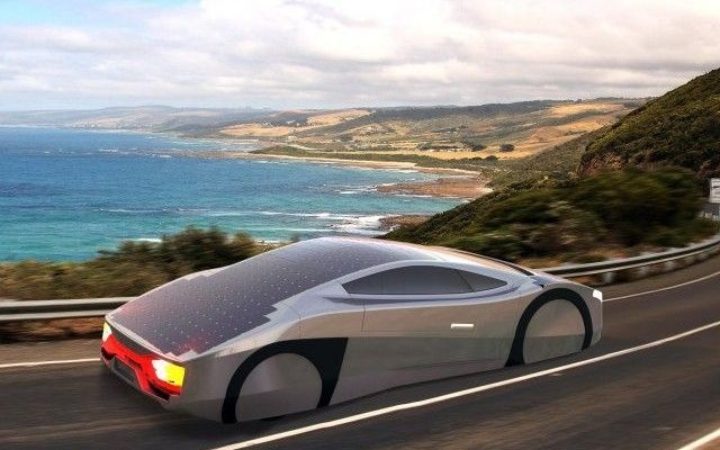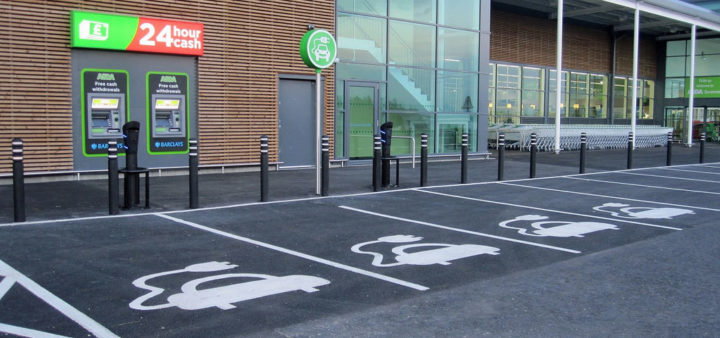And Your Future Energy Provider Is…..?
With the rise of electric cars, car companies are turning into energy companies
By Matt Finch
Share
Last updated:
Whilst we’re coming to terms with the brilliant / bonkers (delete as appropriate) decision that Brexit is, and the seriously massive knock-on effects come out the woodwork, other issues have unfortunately refused to go away.
In particular, the UK’s energy system needs a dramatic overhaul, but there is no simple way of doing it. Like Brexit, developments happening now have big knock-on effects in the future.
Energy is important stuff, but I would wager that the vast majority of the UK’s population are unaware of the dramatic changes that are happening in the UK system. Interconnectors, energy storage and DSR mean nothing to most people. But there is one crucial aspect of the transformation that everyone will become aware of, mainly because a lot of people have one parked on their drive.

For the older generation, your first car was everything. It signalled freedom and your entry into adulthood. Interestingly, for the younger generation that staging post is now the first smartphone, which may help explain why car ownership is decreasing in the UK.
For both generations though, it has been obligatory to headbang anytime Bohemian Rhapsody came on the car radio.
Many people love their cars. Many people even name their cars. But cars are changing. They’re getting quieter. And less polluting.
And have you checked out the crazy acceleration this new breed is capable of? The Formula E cars finishing their season in London’s Battersea Park this weekend go from 0 to 60mph in three seconds, and touch 140mph on the straight – performance that’s matched by top-of-the-range road cars.
On your marks, get set, GO!
The shift towards electric vehicles (EVs) has started in earnest. The number of EVs on UK roads more than doubled last year; the most popular model is the Nissan Leaf, which is built in Sunderland. (interestingly, Nissan has just finished installing 4.75MW solar panels at its factory, making its electric cars even greener).
In Scotland, the number of charging stations is rapidly overtaking the number of petrol garages. Transport Scotland had already pledged to get rid of all petrol and diesel cars by 2050 - although this would probably have happened anyway. Abroad, there is further ambition. The Dutch parliament is currently debating whether or not to ban the sale of petrol and diesel cars from 2025 - just 8 ½ years away. The Norwegian government is doing the same.
However, let’s not get too carried away. In the UK, nearly twice as many Ford Fiestas were sold last year as EVs. In fact, ‘alternatively fuelled cars’ made up only 2.8% of sales, so this really is a fledgling market.
Without subsidies, EVs are currently more expensive than their like-for-like petrol and diesel models - although battery costs are plummeting. Range anxiety still needs to be overcome, although again the big car manufacturers are all working on this: Daimler is set to unveil a 300 mile range EV soon, while Nissan will upgrade future generations of the Leaf to have a 200+ mile range. No idea if their new cars will change colour in the autumn though.

But don’t be too down - this is actually pretty standard. In business terms, it’s following what’s called the S Curve, where sales initially plod along, but then suddenly take off before flattening out once market saturation is achieved.
Clearly the numbers are saying that the EV industry is about to take off, and this upcoming ramp-up of scale has some great side-effects.
Demand for renewable electricity would increase, whilst simultaneously driving down the cost of batteries. And of course, the more batteries worldwide, the more renewable power can be added. A lovely virtuous circle.
And there’s the crux. This blog isn’t about cars. It’s about batteries.
One of the obvious side effects of all these massive multinational car companies investing millions of pounds, euros, yen, yuan and dollars into EVs is that EVs are getting good - which means the batteries themselves are getting better and better. And that also means that the car companies are rapidly building up expertise in energy storage, something almost all experts (the real ones, not me) say is essential for our future energy system.
Daimler - Mercedes Benz to most of us - launched a wholly owned German energy storage company in 2015, which has just started delivering household storage units. Nissan is also at it, recently launching its version of a household energy storage system, based on giving old EV batteries a second life. BMW is copying Nissan. And Tesla has been selling its powerwall system for a year now.
So there you go. Car companies are turning into energy companies. At some point, you can expect to see them start offering their customers energy packages – just as supermarket chains began selling petrol some years back, and pubs coffee. The critical point is that electric cars won’t just take/buy electricity from the grid, they’ll also give/sell it back again. This will smooth out peaks and troughs caused by renewables, something that will surely become known as “carbritage”. And all done, eventually, by market forces.

Move over oil, lithium’s here
There is obviously a major loser here. Taken as a whole, the oil industry’s primary source of profits is the car industry - the more petrol and diesel cars sold worldwide, the bigger their market, and the bigger their profits.
The fundamental shift in direction towards EVs means that the oil majors need to start thinking about their long-term strategy. And that’s started too. Total, one of the 10 biggest oil and gas companies globally, recently announced plans to buyLamparis, a Belgian/French green energy provider. Prior to this, it agreed to buy Saft, an energy storage company…..
It leaves you thinking. Who will provide your household energy in the future? Who will be the ‘Big Six’?
It’s not a massive leap of imagination to suggest one of them might be a car company, and another one an oil company. And that’s the future energy system we’re heading for. Time to start getting your head around it; in the long run, it may change your life even more than Brexit.
Share